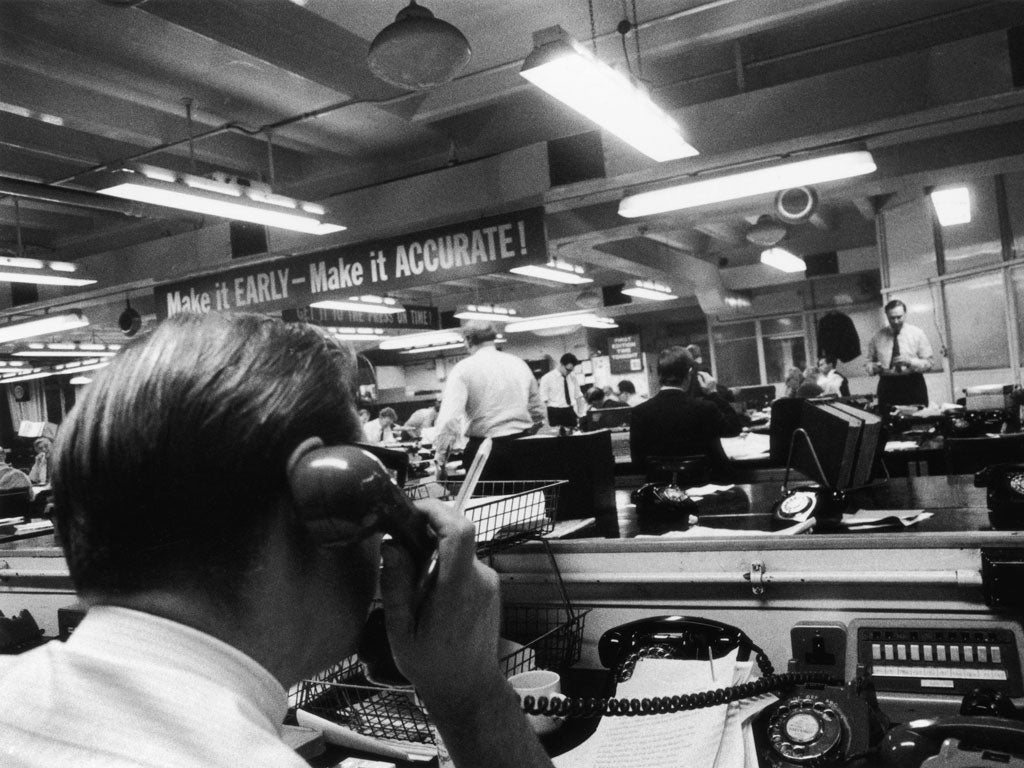The Independent's journalism is supported by our readers. When you purchase through links on our site, we may earn commission.
Make that call: Why it's time for office workers to pick up the phone again
Email might make us feel crisp and professional, but it's a defensive technique. The "one-man show" telephone call is a big loss to office culture

When I edited Smash Hits in the early 1980s we had a brilliant advertising manager. He liked to talk. In fact he did nothing but talk. He picked up the phone and talked to clients. We heard every word he said. I can still recite his shtick 30 years later. But here’s the thing. In two years of working with him I never saw him write anything down.
Offices were noisier places in those days. They were performance spaces. Typewriters clacked and dinged, phones rang, fax machines pleaded, while the biggest personalities built their phone conversations into extravagant one-man shows, often for the benefit of colleagues sitting across the desk. It’s a world away from the tappety tappety cubicles where today’s media drones sit emailing each other in a language designed to neutralise the power of personality, avoid conflict and above all cover their own backs.
A new poll confirms the way things are heading. E-mail is now the most popular form of communication between office workers. Well, e-mail would be a good servant but a rotten master if only for the way it reduces learning opportunities. Newcomers to an office used to learn from listening to an experienced editor or salesman effectively performing their job in public. When people got in touch with other people by calling their office number a smart junior who was prepared to pick up an unanswered phone and offer to take a message quickly got a reputation as someone to watch.
You had a picture of everyone you dealt with because you spoke to them or even met them face to face. In recent years I have written for one magazine for four years without once speaking to the person who commissioned me. This year I had a 20-email exchange with a PR over a complex arrangement. Only afterwards did I realise that he was a she.
David Carr of the New York Times wrote last week about the increasing demands for "quote approval" from interviewees. This is the consequence of a system where people increasingly prefer to be interviewed via email. That way they can choose their words, often with expert assistance, and don’t risk having their answers misquoted or, what’s worse, being followed by the words “he said unconvincingly”. When there’s something to win you want face time. When there’s something to lose, it’s email every time.
Email makes us seem crisp and professional but it’s a defensive technique, a dead bat, a conversation-ender. Tom Hibbert hated it. Tom was the most effective star interviewer Smash Hits had. Tom’s big trick was to ask one question and then sit back and let the subject talk. He knew that the most eloquent part of conversation is silence. They would eventually fill that silence with something worth writing down.
Join our commenting forum
Join thought-provoking conversations, follow other Independent readers and see their replies
Comments
Bookmark popover
Removed from bookmarks